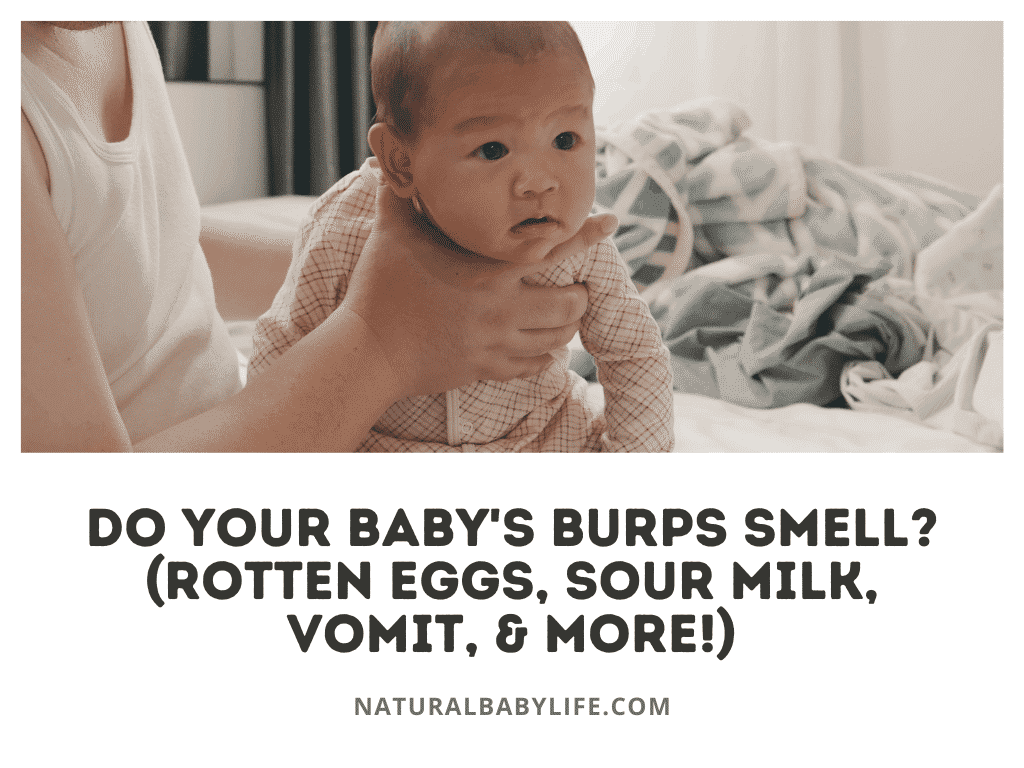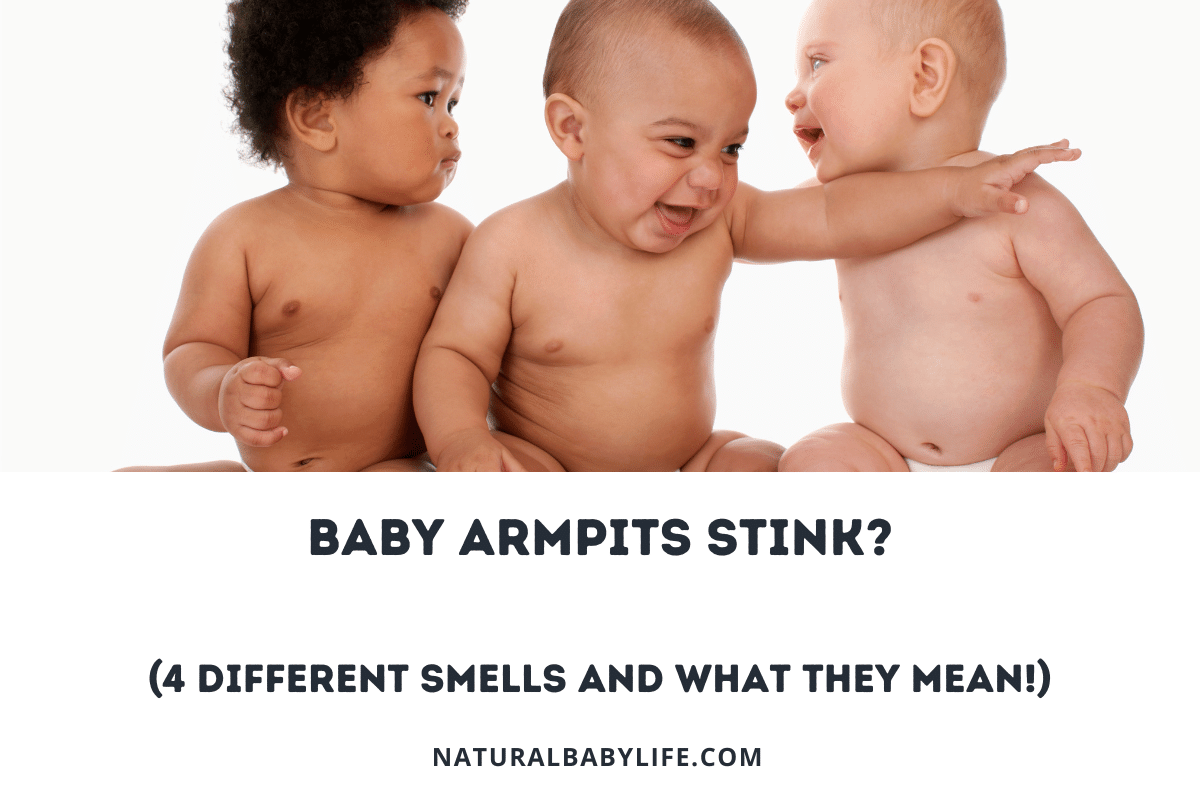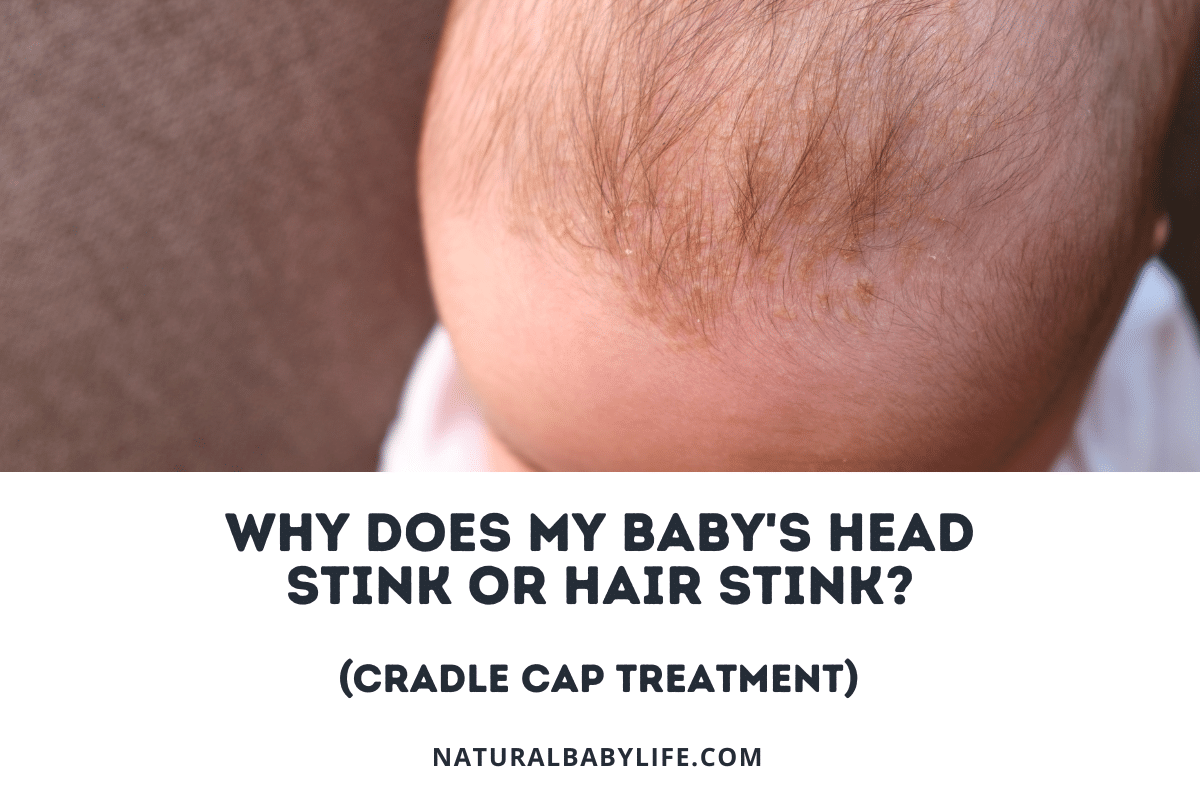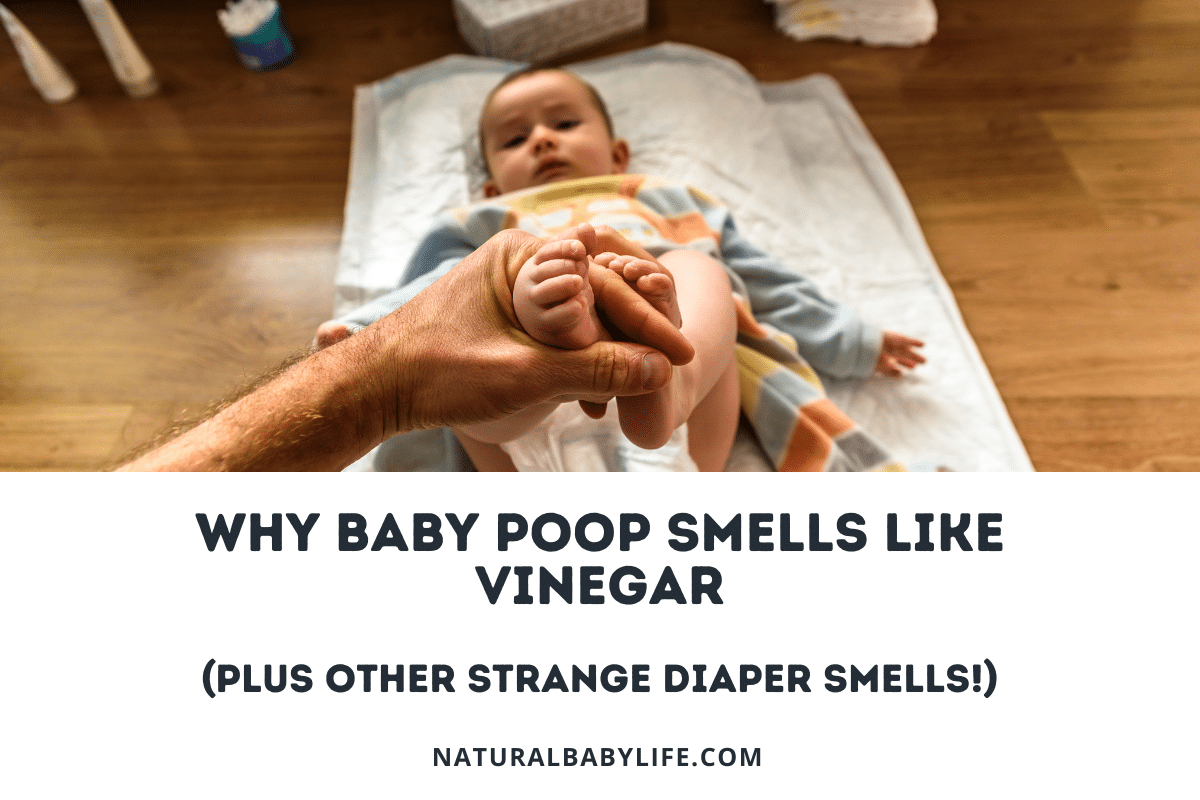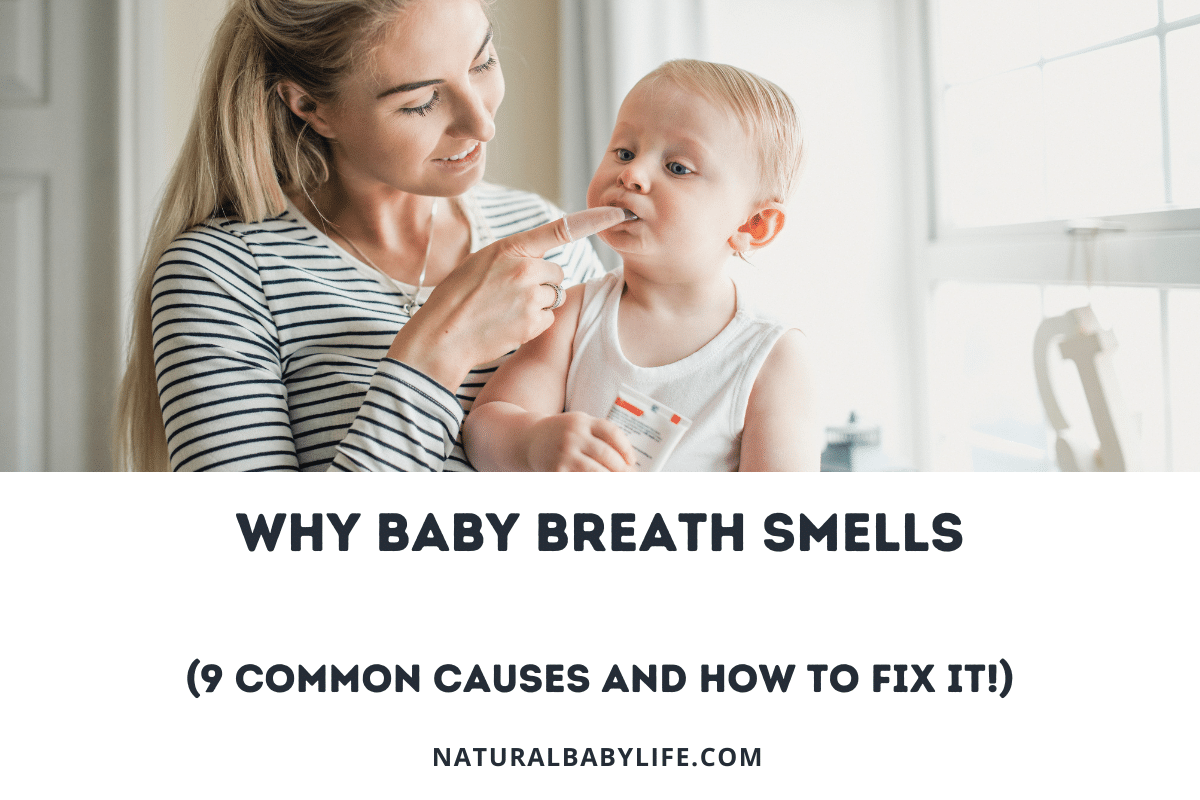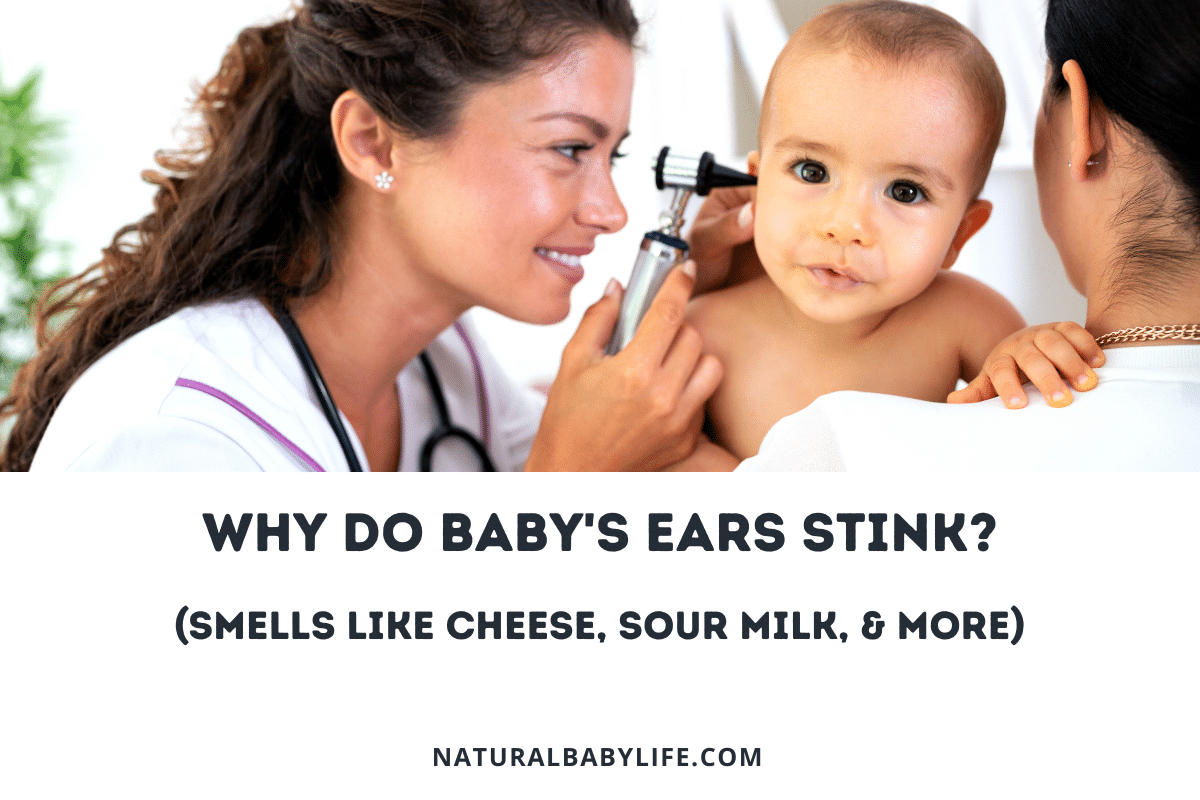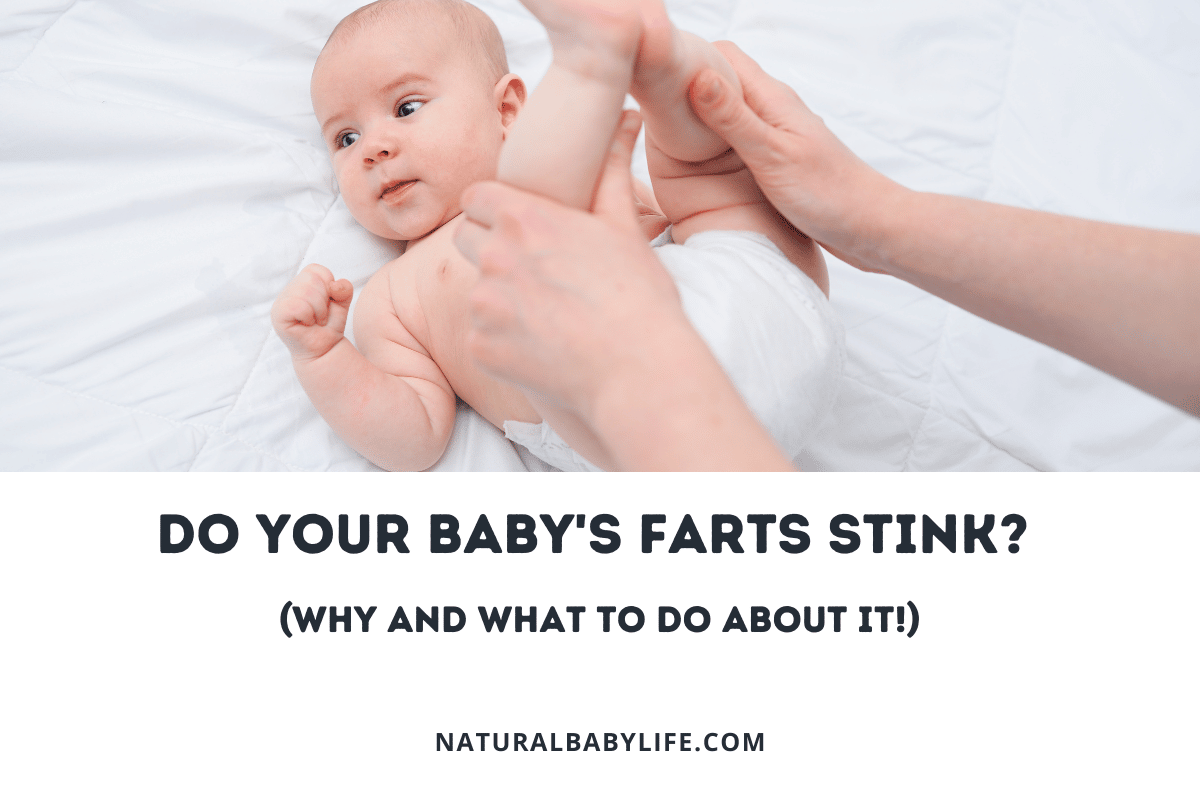Infancy is probably the only time in a child’s life that they will be praised for burping. We actually go out of our way to encourage that little burp (or big belch) after our babies eat. But we usually don’t expect those burps to be particularly smelly. So what does it mean when they are?
Infant burps are caused by excessive air intake while feeding and do not normally smell bad. Sulfur burps may be caused by difficulty digesting certain nutrients in formula or breastmilk. This is easily corrected by adjusting mom’s or baby’s diet. However, burps that smell like sour milk, vomit, or poop may indicate more severe issues and should be discussed with your pediatrician.
Continue reading to learn more about why your baby’s burps smell bad and what you can do to help.
Table of Contents
Why do my baby’s burps smell so bad?
Infants frequently swallow a lot of air while eating. This is true for both breastfed and bottle-fed babies, although bottle-fed babies tend to swallow more because they usually drink faster. A stomach full of air can make your baby fussy and uncomfortable.
Babies usually need help to get that extra air out of their stomachs – this is why doctors recommend burping your baby frequently during feedings. Burping is a perfectly natural and necessary bodily function that helps your baby’s digestion and prevents excessive spit ups and gas.
You might expect your baby’s burps to smell faintly of breastmilk or formula – this is what they ate after all. But you probably don’t expect the strong foul odors more often associated with adult burps. But baby burps aren’t much different from adult burps and the reasons they might smell bad are mostly the same.
Some primary reasons for smelly burps at any age are:
- Something you ate – For breastfed babies, this might literally mean something you ate. Everything a mother eats has the potential to be passed on to her baby through her breast milk, including nutrients from certain foods known to cause smelly gas.
- Food intolerance – Some babies are sensitive to certain formula ingredients. Others have difficulty processing some nutrients passed on through breastmilk. In both cases, smelly gasses may build up in your baby’s stomach while trying to digest these enzymes. Switching formulas or changing up Momma’s diet may help.
- Gut imbalance – Babies guts are still developing and may need time to build up the right microbiomes in the right places. Too much of certain bacteria in the small intestine may cause a build up of stinky gasses. Babies who have been on antibiotics may have increased risk of gut imbalance.
- Acid reflux – Acid reflux causes stomach contents to rise back up into your baby’s esophagus, bringing with it the smelly gas produced by bacteria in the stomach. This can make burps smell particularly foul.
Rotten eggs
Why does your baby’s breath smell like rotten eggs? If your baby is breastfed then it’s probably due to the high sulfur content in something Momma ate.
Sulfur and rotten egg burps are harmless and generally do not indicate that anything is wrong. Try changing up your diet a bit to help with the smell. Some moms choose to cut out dairy or eggs completely.
That rotten egg smell comes from hydrogen sulfide gas, produced in the stomach by the breakdown of some foods. The most frequent culprits are:
- Foods that are high in protein
- Milk
- Cheese
- Eggs
These foods all naturally have high sulfur content. But hydrogen sulfide can also be produced by foods which are high in sugar, starch, or fiber and by some vegetables as they break down in your digestive system such as:
- Cabbage
- Broccoli
- Brussel Sprouts
- Beans
Sulfur
Sulfur burps are similar to rotten egg burps and are caused by the same hydrogen sulfide gas. Limiting your intake of foods that are high in sulfur or vegetables that are known for producing excessive gas will decrease the amount of these nutrients which are passed on to your baby through your breast milk.
Sour or Spoiled Milk
Is that milk breath not so sweet? Your baby may be suffering from acid reflux.
When breastmilk or formula mixes with stomach acid, it becomes curdled. This curdled milk may pass back up into the esophagus if your baby has acid reflux, causing his breath and burps to smell like sour milk.
Other symptoms of acid reflux in babies include:
- Incessant crying
- coughing during feeding
- Irritability
- Refusing to eat
Fortunately, most acid reflux in infants is harmless, although it is certainly uncomfortable for them and may lead to some sleepless nights for you. It usually resolves by 12 to 18 months. In the meantime, you can use smaller feedings and frequent burpings to help reduce its frequency.
Infant acid reflux is something to monitor and be sure to discuss it with your pediatrician to rule out more serious conditions such as gastroesophageal reflux disease and pyloric stenosis.
Vomit or acidic
One sign that your baby’s acid reflux may be something more severe is an acidic or vomit-like smell in his burps. This smell indicates that a substantial amount of stomach acid is making its way back into your baby’s esophagus.
This can happen when your baby has severe acid reflux, gastroesophageal reflux disease, or pyloric stenosis. It is also possible when your child has a stomach bug or has recently vomited.
Vomit-like burps may be accompanied by forceful spit-ups and green or yellow fluid. You should call your pediatrician if you notice any of these symptoms.
Poop
A noticeable poop smell is not something you would expect from a baby’s mouth. However, just like in adults, breath that smells like poop is often a sign of a sinus infection.
This poop smell is caused by excess mucus and bacteria in the sinus cavity which drains into the throat and esophagus, causing bad breath and smelly burps.
Breath that smells like poop can also be caused by gastroesophageal reflux disease. This severe form of acid reflux can cause bad breath because stomach acid and bacteria are frequently coating the lining of the esophagus. Talk to your pediatrician about how to help with these symptoms.
Why do breastfed baby burps smell?
Breastfed baby’s receive all of their nutrition from their mother – and whatever their mother eats determines exactly which nutrients are passed on to the baby. Normally, a breastfed baby’s burps will smell sweet – like breast milk. But some foods in mama’s diet may cause those burps to be more stinky.
Your baby’s burps will likely reflect whatever you ate a few hours ago if you are breastfeeding. If your meal was high in sulfur, sugar, starch, or fiber you may end up with some rotten egg smelling baby burps. Some babies may have difficulty digesting certain proteins from cow’s milk or eggs which could also lead to some foul-smelling burps.
If your baby’s burps smell bad, consider monitoring what you eat to see if there is a pattern. You can then try cutting out whatever is making your baby’s burps smell bad if it bothers you but, normally, a few stinky burps are nothing to worry about.
If your baby’s smelly burps are accompanied by excessive fussiness and discomfort, your baby may have a food allergy or sensitivity. You should talk to your pediatrician about recommendations for changing your diet to avoid foods your baby is sensitive to.
The most common food sensitivities in breastfed babies are:
- Cow’s milk
- Soy
- Wheat
- Corn
- Eggs
- Peanuts
Why do formula-fed baby burps smell?
Formula-fed babies typically burp more frequently than breastfed babies because they drink faster and swallow more air. However, formula-fed babies are not exposed to the same variety of flavors and nutrients that a breastfed baby might experience. Generally, a formula-fed baby will have consistent formula smelling burps.
A formula-fed baby may develop stinky burps if they become sensitive to an ingredient in their formula. Dairy or soy based formulas are the most common culprits of food protein sensitivities and a stinky burp may be a sign that they are not digesting it well. Watch for other signs of intolerance such as excessive fussiness and discomfort.
If you’ve just switched to a new formula, it’s best to give it a few weeks for your baby’s gut to adjust. The smell will likely go away as your baby’s stomach learns to digest the new food.
Why would a newborn’s burps smell bad?
A newborn’s gut is not yet well developed and may need time to adjust to whatever foods are going in – whether breastfed or formula-fed. This may lead to some stinky burps in the beginning or anytime something new is introduced into their diet.
If you were on antibiotics before giving birth or your baby was given antibiotics after birth, their gut may be particularly out of balance and they may need more time, or a probiotic supplement to help balance things out.
A few stinky burps aren’t normally something to worry about but be sure to ask your pediatrician if your baby’s burps are particularly foul-smelling of spoiled milk, vomit, or poop – as this could be a sign of something more serious.
Is it normal for baby’s breath or mouth to smell bad?
Baby breath doesn’t normally stink but there are a few common culprits that may result in a smelly mouth.
Toys/pacifiers
Babies love to chew on their toys but, if their toys are not regularly cleaned, they may become a breeding ground for bacteria that gets passed back and forth between the toy and your baby’s mouth. This is also true for pacifiers. Be sure to sterilize any teethers or pacifiers regularly to avoid bad breath.
Dry Mouth
When your baby has a stuffy nose, he may sleep with his mouth open to help him breathe. Just like in adults, mouth breathing can lead to a dry and smelly mouth in the morning. Using a cool-mist humidifier and nasal aspirator when your baby is sick may help to alleviate this.
Spit-up
Acid and bacteria from the stomach may sit in your baby’s mouth after a spit-up and cause his mouth to smell. Wiping your baby’s mouth and gums with a damp cloth after a spit up can help. You should also do this after feedings to prevent bacteria build-up from food residue.
While these problems are fairly common and easily treated/prevented, there are some more serious problems that may cause bad breath in infants. These include:
- Tooth decay (in an older baby)
- Infection
- Gastroesophageal reflux disease
- Foreign object in the nasal cavity
These problems are usually accompanied by other symptoms and will likely cause more foul-smelling breath than the usual causes. Be sure to discuss with your pediatrician if you suspect any of these problems.

